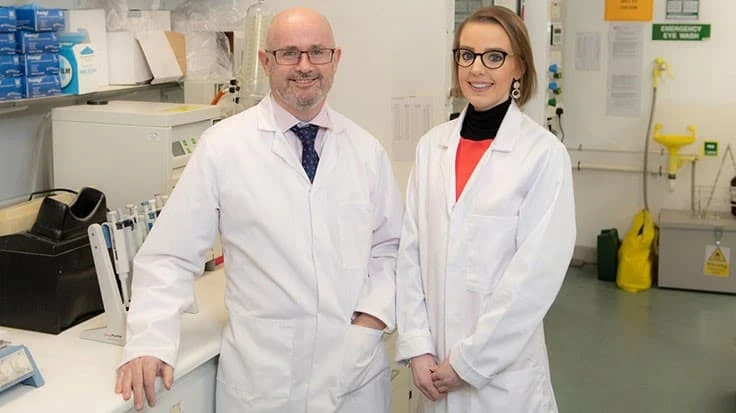
Queen's University Belfast
Researchers from the School of Pharmacy at Queen’s University Belfast developed an antimicrobial coating that can be applied to urinary catheters to significantly reduce pain and lower the risk of infection.
The coating was created using a mix of polymers, ensuring its low friction which reduces catheterization pain and discomfort, and contains antimicrobial properties to protect users from microbes.
Urinary tract infections (UTIs) associated with catheter use are one of the most common types of infection that affect people staying in hospital. This risk is particularly high if the catheter is left in place continuously (an indwelling catheter) with approximately 50% of all long-term catheterized patients experiencing recurrent episodes of catheter infections and blockages.
Dr. Nicola Irwin, lecturer in Pharmaceutical Materials Science and first author on the paper says: “Patients with poor control over their bladder function, for example those with urinary retention or drainage problems caused by neurological conditions such as spina bifida or spinal cord injuries, may need catheterized up to 8x a day.
“Insertion and removal of poorly lubricated catheters causes friction between the urethral walls and the device surface, which is not only extremely painful for the patient, but upon regular use can lead to damage and narrowing of the urethra, bleeding, and infection.”
As well as being extremely painful, low-level infections, overtime, can cause antibiotic resistance in these users.
Professor Colin McCoy, Chair in Biomaterials Chemistry and co-author of the research explains: “People who use medical devices such as catheters on a daily basis are at high risk of persistent low-level infections, which, overtime, can cause antibiotic resistance. Antibiotic resistance is one the biggest global threats to society today and leads to longer hospital stays, higher medical costs and increased risk of infection and even death.
“It is vitally important we provide an alternative to the currently used devices, which have not changed much since their introduction almost 100 years ago despite their widespread clinical and many associated limitations.”
Researchers at Queen’s University Belfast in collaboration with the University of Leeds published their findings in ACS Applied Bio Materials.
Latest from Today's Medical Developments
- MedCon 2025 takes place April 23-25 in Columbus, Ohio
- Portescap’s miniature motor capabilities at MD&M West 2025
- Additive manufacturing trends, innovations
- US cutting tool shipments decreased
- Nordson EFD’s PICO Nexμs jetting system
- Global Industrie - A meeting to understand, anticipate and contribute to the industry of tomorrow
- Wintriss’ Tracker Hardware Solution for ShopFloorConnect Production Tracking Software
- Protolabs expands end-to-end manufacturing capabilities





